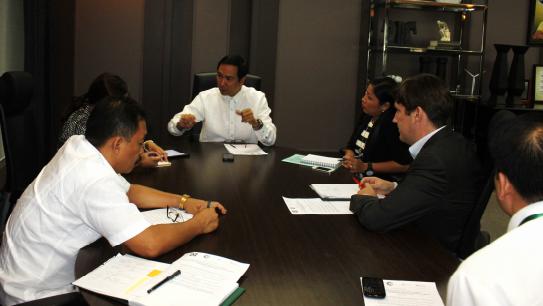Carlos Jericho Petilla is the Secretary of Energy for the Philippines. He recently explained that rooftop solar panels are now cheaper than coal there. “As a simple example, the cost of electricity from a coal plant can run up to P5.50 per kilowatt hour, plus P6.50 for distribution and transmission, which amounts to P12.00. If you install solar panels on your rooftop, you will only spend P9.00 per kilowatt hour for generation and no cost for distribution or transmission. This already saves you up to P3 per kilowatt hour.” His statement appeared in a Department of Energy document titled, “DOE Sec. Petilla: Renewables Pave the Way to Energy Security in the Philippines.”

Solar Panels Have Other Benefits
He didn’t stop there, though. He also mentioned that there is a another advantage: “we must clarify that the equipment only entails one-time cost, not repeated costs. Also, private citizens can actually benefit more for own-use of RE such as solar, wind and biomass in self-generation of electricity for their own use.”
The Philippines passed a net-metering act in 2008, so solar panel users can sell excess power back to the grid and receive credits that lower their utility bills. Having solar panels installed on a home’s roof has another benefit. Homeowners can become more interested in their own energy consumption and monitor it more when they have technology that generates energy so close by. In other words, the experience of having solar panels can be educational and behavior changing.
Is it a big deal that such a prominent government official made a public remark that seems to be pro solar?
Yes, because currently his country imports most of its energy. The cost of doing so is a huge outlay that could be avoided, if the Philippines successfully transitions to energy independence. How that happens and in what time frame is not clear, but falling solar prices have definitely helped make rooftop solar more attractive to both homeowners and businesses.
Adding more solar power to the mix could help the country save money by reducing dependence on imported fossil fuels. Even small reductions can have significant savings. For example, last year it was calculated that adding coconut-based biodiesel to vehicle fuel might save about PHP15.5 billion.
Distributed Solar
There’s at least one more potential benefit to the Philippines from solar power. Distributed off-grid solar can be used as a backup during natural disasters or blackouts. The Philippines has over 7,000 islands, so distributed solar can be an effective solution when there is no grid power available.
Source: CleanTechnica. Reproduced with permission.







